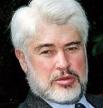Cyril Ramaphosa plays a "long game", but what game is it?
Cyril Ramaphosa, we are told, is a master at the "long game". He thus sat silent for years in Jacob Zuma's cabinet as his focus was on supplanting him before dealing with corruption. He took two months to ease Mr Zuma out of the Union Buildings. His bloated Cabinet, purged of many but not all of his predecessor's dodgy appointees, will remain in office as a "transitional" measure so as not to cause ructions in the party. He has endorsed expropriation without compensation as a means of consolidating his party leadership.
But what exactly is Mr Ramaphosa's game? With a view to the 2019 election, he obviously wishes to don some of the clothes of Julius Malema's Economic Freedom Fighters (EFF). It is of course possible to read Mr Ramaphosa's endorsement of expropriation without compensation as merely a deft strategic manoeuvre: the conditions he has stipulated could be a means of removing with one hand what he has given with the other.
But there is another possibility, which is that our new president's stance on expropriation is ideological. In July last year Mr Ramaphosa made a speech in which he reminded the South African Communist Party that the SACP and the African National Congress (ANC) were "inextricably bound to the success of the national democratic revolution". No doubt this is what you say when you talk to the SACP, especially when you are soliciting support. But Mr Ramaphosa endorsed the national democratic revolution four times in the same speech, suggesting that he might have been speaking from the heart as well.
The mainstream media, as usual, ignored Mr Ramaphosa's revolutionary promises. Knowing that the world was watching, he did not repeat them at Davos or in his state-of-the-nation address last month. But expropriation without compensation is entirely in line with the ideology of the national democratic revolution, which envisages radical redistribution of property acquired by whites through supposed colonial dispossession of blacks.
Despite having himself been talking up expropriation without compensation in recent weeks and months, President Ramaphosa now says there is no reason for anyone to "panic and start beating war drums". Everything will be done "by dialogue, discussions, and engagement". But why promise all this dialogue when Parliament has already passed a resolution adopting a policy of expropriation without compensation? Evidently, only the modalities will be up for discussion, not the principle.
Many years ago Mr Ramaphosa was reported to have said that the ANC would deal with whites as if boiling a frog. The temperature would be raised very slowly so that the frog would not notice the rise and jump out of the water. So also, whites would be dispossessed of wealth, land, and economic power by a "slow and incremental process" so that they did not "rebel or fight" against it. The president's attempts now to pour oil on troubled waters are in line with this approach, which echoes national democratic revolution strategy.
Mr Ramaphosa promises that there will be no "smash and grab". Maybe not. But confiscation by lawful process is still confiscation. He further promises that expropriation without compensation will be implemented in a manner that does not undermine the economy, agricultural production, or food security. Similar conditions were incorporated into the parliamentary resolution when the EFF draft was amended by the ANC. However, these caveats are of little comfort to the individual whose farm or house or other property may be confiscated and who will have to bear the costs of mounting any defence.
It may be that Mr Ramaphosa has abandoned his earlier revolutionary beliefs and that he will now use bureaucratic power and lethargy to water down the policy he and his party have adopted. It would, however, be prudent to operate on the assumption that his repeated and emphatic endorsement of expropriation without compensation reflects his own desires. His honeyed assurances should not lull anyone into complacency. It would be a disaster and an irony if Mr Ramaphosa were to do to agriculture what his predecessor has done to mining.
* John Kane-Berman is a policy fellow at the IRR, a think-tank that promotes political and economic freedom.

